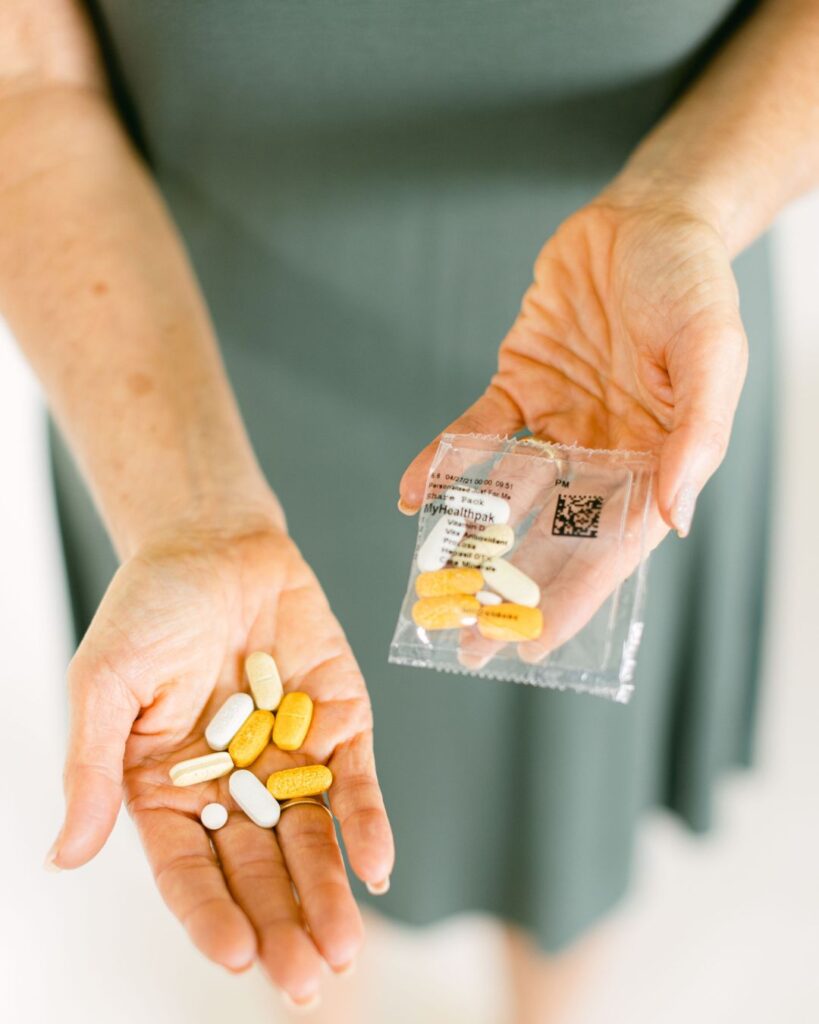As a menopause health coach, I often get asked how you’ll know when menopause is finally ending. This post explores the subtle signs, the unexpected plot twist, and what they might mean for your body, mindset, and next chapter – plus how to support yourself in this new phase.
If you’ve been riding the hormonal rollercoaster for years, you might be wondering:
“Am I finally done with the worst of it?”
“Are my symptoms going to ease up soon?”
“Is this finally the end of menopause?”
As a certified holistic nutritionist and menopause health coach for over 30 years, I’ve helped thousands of women navigate this exact phase, and here’s what I want you to know:
Menopause isn’t a single moment; it’s a transition. And while it doesn’t “end” in a traditional sense, there are signs that your body is moving into a more stable phase known as postmenopause (though I don’t love that term, we’re really in menopause for the rest of our lives).
Let’s break down what that means, how to spot the signs, and what you can do to support your health in this next chapter.
First, What Does “Menopause Ending” Actually Mean?
Menopause is officially marked by 12 consecutive months without a period; no spotting, no irregular bleeds, just a full year of hormonal silence. Once you cross that threshold, you’re considered postmenopausal. But the symptoms don’t vanish overnight.
7 Signs That Menopause Is Ending
Here are some common signs that your body is transitioning out of the most intense phase of menopause:
- Hot Flashes and Night Sweats Start to Fade
You may still get warm, but the frequency and intensity begin to drop.
- Mood Swings Become Less Volatile
The emotional highs and lows start to level out. You may feel more emotionally grounded and less reactive.
- Sleep Patterns Stabilize
Insomnia and 3 AM wake-ups become less frequent. Your circadian rhythm is finding its groove again.
- No Periods for 12+ Months
This is the clinical marker of menopause. If you’ve hit this milestone, you’re officially in postmenopause.
- Vaginal Symptoms Plateau or Improve
Dryness, discomfort, or changes in libido may stabilize, especially if you’re using supportive therapies or lifestyle strategies.
- Skin and Hair Changes Slow Down
Thinning hair and dry skin may persist, but the rapid shifts often ease up.
- A Renewed Sense of Self
Many women report feeling clearer, more confident, and ready to reclaim their energy.
What Happens After Menopause?

Postmenopause is a lifelong phase marked by consistently low estrogen levels. While some acute symptoms like hot flashes, sleep disturbances, and mood swings may resolve in 2 to 7 years, others persist for decades. It all depends on lifestyle, genetics, and overall health.
This phase isn’t just about symptom management; it’s about protecting long-term health. Many women experience subtle but impactful changes in bone density, cardiovascular function, and cognitive clarity, which are all linked to hormone depletion.
Yet only a small percentage are aware of the new science supporting hormone therapy for heart, bone, and brain health.
How to Support Your Body in This New Phase



Whether you’re newly postmenopausal or still spotting signs that menopause is ending, your body deserves care and support. Here’s how to nourish yourself:
- Nutrition: Prioritize protein, healthy fats, phytoestrogens, and fiber to support metabolism and mood. Check out my #LoraApproved hormone-friendly recipe collection for delicious, science-backed meals that love your body back.
- Movement: Strength training and walking help protect bone density and heart health, while yoga and Pilates support flexibility, core strength, posture, and nervous system regulation – all of which are essential for thriving in postmenopause.
- Supplements: Consider targeted support like EstroPro hormone balance and StressRelief for sleep and emotional resilience.
- Connection: Stay engaged socially and emotionally. Community is medicine.
FAQs
Is it possible for symptoms to return after they’ve faded?
Yes, especially during times of stress, poor sleep, or dietary shifts. However, they’re often less intense. Think of it as your body whispering instead of shouting.
Can I still experience hot flashes after menopause?
Yes. While they often fade, some women continue to experience occasional hot flashes well into postmenopause. The intensity usually decreases, but triggers like stress, alcohol, or heat can still spark them.
What labs or tests confirm that menopause is ending?
There’s no single test that says you’re done. However, FSH (follicle-stimulating hormone) levels, estradiol, and progesterone can offer clues. Your symptoms and cycle history are often more telling than labs alone.
Let’s Rewrite Your Next Chapter, Together 🌿
Menopause may not “end” the way we expect, but it absolutely evolves. Recognizing the signs that it’s shifting can help you feel more grounded, hopeful, and empowered to embrace what’s next.
If you’re curious how to support your body in this phase, I’ve got you.
Book a free clarity call for personalized guidance via my online calendar below.
Join my newsletter for hormone-friendly tips, insights, recipes, and real talk, straight to your inbox.
Let’s make this chapter your strongest yet.
+ show Comments
- Hide Comments
add a comment